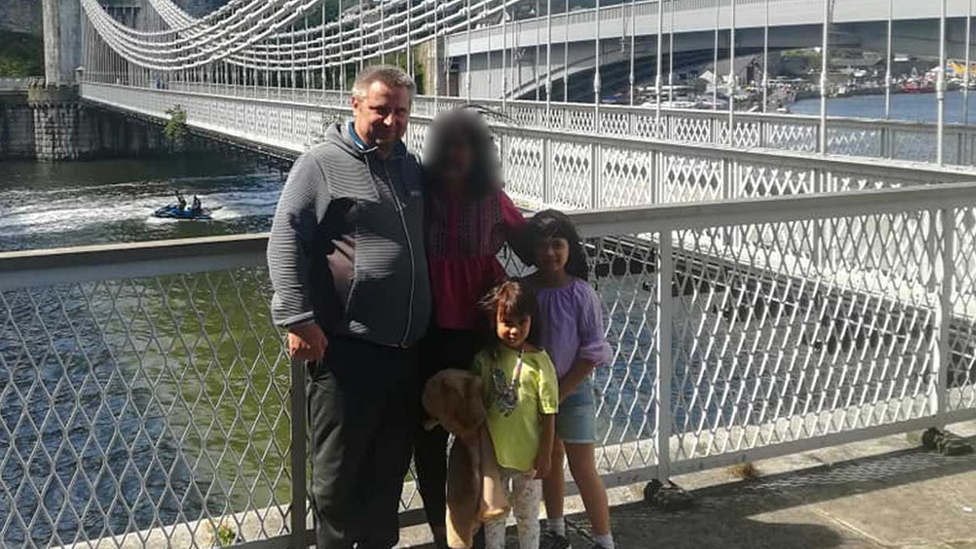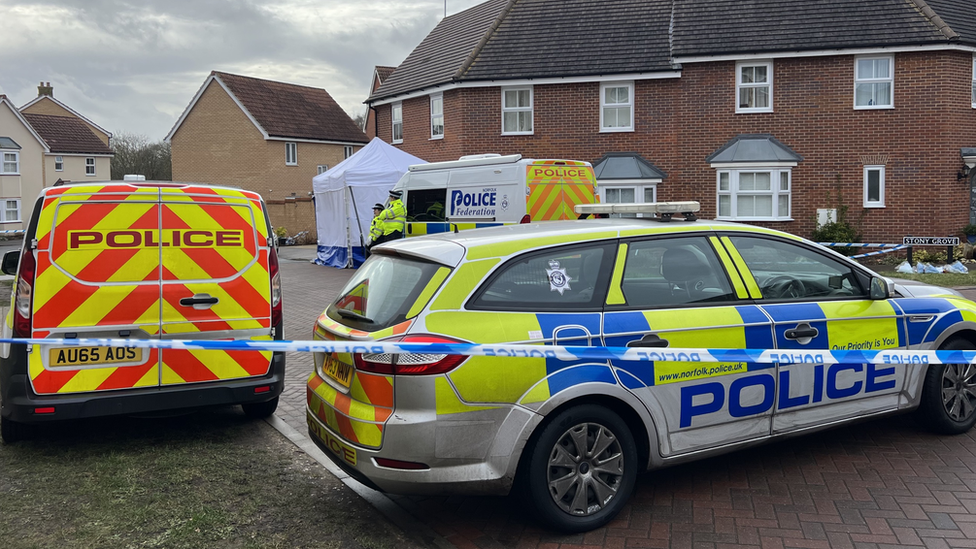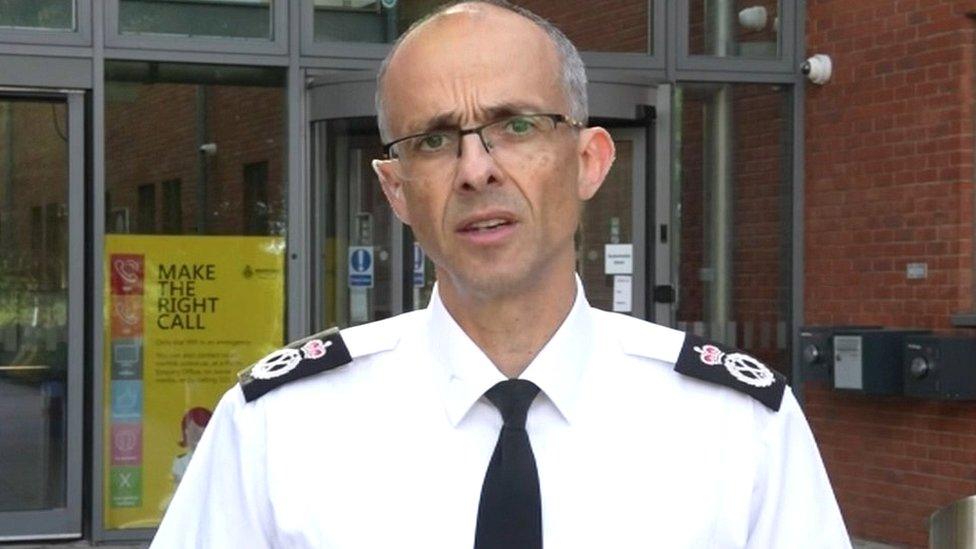Costessey deaths: Norfolk police must improve call handling
- Published

Bartlomiej Kuczynski, 45, Jasmin Kuczynska, 12, and eight-year-old Natasha Kuczynska were found dead by police officers on 19 January
A police force has been told it must improve the way it handles emergency calls involving vulnerable people, following the deaths of four people.
Norfolk Police's control room procedures were reviewed after the bodies were found at a house in Costessey near Norwich.
Bartlomiej Kuczynski had dialled 999 with concerns about his mental state but officers did not initially attend.
Chief Constable Paul Sanford said he accepted the report's findings.
"We have already taken action to address the issues identified in this report and I hope this provides a degree of reassurance to the public about our call handling processes," he added.
The review, carried out by His Majesty's Inspectorate of Constabulary and Fire & Rescue Services (HMICFRS), began following the discovery of the four bodies in January this year.
It emerged that Mr Kuczynski, 45, had dialled 999 but was directed to NHS 111.
Kanticha Sukpengpanao, 36, Jasmin Kuczynska, 12, and Natasha Kuczynska, eight, were found with him at the house an hour later when a dog walker called police.
Norfolk Police has previously said the deaths of Jasmin, Natasha and Ms Sukpengpanao were being treated as murder, while the death of Mr Kuczynski was not suspicious.
Giles Orpen-Smellie, who was then serving as the police and crime commissioner for Norfolk, commissioned the review into how the force dealt with calls from vulnerable people.

Allan Bedford Crescent in the Queen's Hills housing estate in Costessey, where the bodies were found
HMICFRS said it had reviewed almost 500 calls to the control room, but not the call made by Mr Kuczynski, as the case was still being investigated by the Independent Office for Police Conduct.
The inspectorate said that overall, call handlers provided "an effective and professional service to the public" .
It also said that changes to how callers were questioned - made in February - had led to improvements.
But it also found there were variations in how calls were recorded, that some control room staff had not received the relevant training to help them respond to vulnerable people and some cases were downgraded without being reassessed.
Inspectors said a lack of consistency meant the force was not always able to identify vulnerable people - including children and victims of domestic abuse - and might not respond in the way needed to keep them safe.
His Majesty's Inspector of Constabulary Roy Wilsher said the force's call handlers provided "a high level of service to the public" but there were areas that "need to be improved".
"The force must make sure it has robust quality assurance measures in place to ensure processes are consistent, and it should provide staff with relevant training to help them to correctly identify vulnerable people," he added.

Norfolk's chief constable Paul Sandford has said the new Right Care, Right Person policy is about "giving people the right support when they need it"
The release of the review comes just days before the force is due to introduce its controversial Right Care, Right Person (RCRP) policy.
Under RCRP, police would respond to fewer calls and people in mental health distress would be diverted to other services.
Its introduction was paused following the deaths in Costessey.
The review said that RCRP would mean that cases that are not police matters, or are better handled by another agency, would be dealt with "appropriately".
It concluded that people "who contact the force about incidents covered by the RCRP model are more likely to get an improved service".
Mr Sanford said the force control room received about "460,000 contacts a year" and it was sometimes "really difficult to know what was going on through the lens of a phone call".
He welcomed the report and said RCRP would lead to a better service from the police.
"We have already taken steps to address this through our work to implement the RCRP initiative, which has seen changes to our systems in the control room," he said.
"The findings from this report provide further evidence that this is the right thing to do."

Follow East of England news on Facebook, external, Instagram, external and Twitter, external. Got a story? Email eastofenglandnews@bbc.co.uk, external or WhatsApp 0800 169 1830